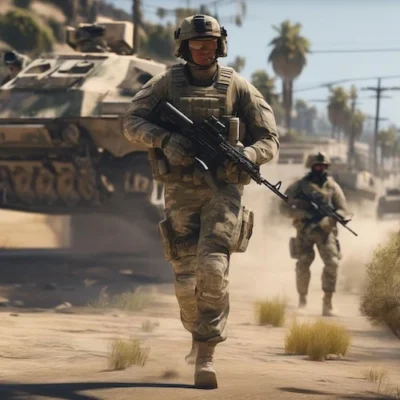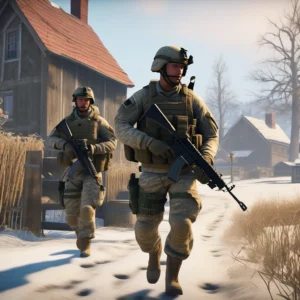Navigating the Complexities of Military Sexual Assault Defense (UCMJ): Why Aggressive Counsel is Essential
For service members accused of sexual assault, the legal battle takes place not in a civilian courthouse, but within the unique and often unforgiving framework of the Uniform Code of Military Justice (UCMJ). An accusation of sexual assault under the UCMJ carries an even more profound weight than its civilian counterpart, threatening not only freedom and reputation but also a cherished military career, veteran benefits, and lifelong opportunities.
The distinctions between civilian and military justice are vast and critical, demanding specialized legal representation from a military sexual assault defense lawyer who is intimately familiar with every nuance of the UCMJ, military culture, and the high-stakes environment of courts-martial.
The military justice system is designed to maintain good order and discipline, a mission that sometimes clashes with the individual rights typically afforded in civilian courts. Sexual assault cases, in particular, have been under intense scrutiny within the military for years, leading to significant reforms and a highly aggressive prosecution stance.
According to data from the Department of Defense’s annual reports on sexual assault, the number of reported incidents remains a serious concern, prompting a continued focus on prosecution. This heightened focus means that any service member facing such allegations is in a fight for their entire future, and “just any lawyer” will not suffice. They need a defender who understands the battlefield of military justice.
The Unique Battlefield: Understanding the UCMJ and Military Justice
 The UCMJ is a separate and distinct body of law governing all U.S. service members. It is not simply a civilian legal system with military uniforms; it operates with its own rules, procedures, and terminology that can be utterly foreign to those outside the military. Ignoring these differences is a grave mistake that can have devastating consequences for an accused service member.
The UCMJ is a separate and distinct body of law governing all U.S. service members. It is not simply a civilian legal system with military uniforms; it operates with its own rules, procedures, and terminology that can be utterly foreign to those outside the military. Ignoring these differences is a grave mistake that can have devastating consequences for an accused service member.
1. Command Influence and the Chain of Command:
- A Double-Edged Sword: Unlike civilian cases where prosecutors are largely independent of the police, in the military, the chain of command plays a direct role in the judicial process. Commanders initiate investigations, decide whether to prefer charges, convene courts-martial, and even influence the composition of the jury (panel members). This inherent command influence, while sometimes beneficial for discipline, can also create an environment where the accused feels pressure or bias from their superiors.
- The Appearance of Impropriety: Even if unintentional, the perception of command influence can undermine the fairness of a proceeding. A specialized military defense lawyer understands how to identify and challenge undue command influence, filing motions to dismiss or for new trials when appropriate. This often requires deep knowledge of military ethics and regulations designed to prevent such interference.
2. The Absence of Grand Juries and Preliminary Hearings:
- Article 32 Hearings: In the military, the civilian grand jury is replaced by an Article 32 preliminary hearing (similar to a preliminary hearing). While it provides an opportunity for the defense to cross-examine witnesses and present evidence, the officer conducting the hearing (the Investigating Officer, or IO) is appointed by the command and simply recommends whether charges should proceed. This is not a binding decision.
- Direct Command Decision: Ultimately, the decision to court-martial a service member rests with the Convening Authority (typically a high-ranking commander). This direct power from the chain of command, rather than an independent civilian grand jury, underscores the unique power dynamics at play.
3. Court-Martial Panels (Juries) vs. Civilian Juries:
- Officer and Enlisted Panels: In a court-martial, the “jury” is called a “panel” and consists of military personnel. For enlisted accused, they can request that at least one-third of the panel be enlisted members. Otherwise, the panel is composed solely of officers. These individuals are often hand-picked by the convening authority, who selects members senior in rank to the accused.
- Different Mindset: Unlike civilian juries drawn from the general public, military panel members are inherently part of the system. They understand military culture, regulations, and the importance of good order and discipline. This unique perspective can significantly impact how evidence is viewed and how testimony is interpreted, requiring a defense lawyer who can speak to this specific audience.
4. Accelerated Pace and Different Rules of Evidence:
- Speedy Trial Demands: The UCMJ generally operates on a faster timeline than civilian courts, with strict speedy trial rules. While this can sometimes benefit the accused, it also means less time for defense preparation and investigation if not managed aggressively.
- Military Rules of Evidence (MRE): While largely mirroring the Federal Rules of Evidence, the MRE have specific nuances critical to military cases. A lawyer must be adept at applying these rules, particularly concerning character evidence, prior inconsistent statements, and the admissibility of privileged communications.
5. Pre-Trial Confinement and Administrative Actions:
- Punitive and Non-Punitive Actions: Beyond criminal charges, service members face unique administrative actions, such as “Article 15” non-judicial punishment, administrative separation (discharge), or restriction of privileges. Pre-trial confinement, while similar to civilian detention, can be more readily imposed in the military.
- Collateral Consequences: A military conviction for sexual assault leads to the automatic loss of veteran benefits, dishonorable discharge, and loss of livelihood, in addition to any prison sentence or sex offender registration. These consequences are often more immediate and severe than their civilian counterparts.
Why Specialized Military Sexual Assault Defense Counsel is Essential
 Given these profound differences, retaining a specialized military sexual assault defense lawyer is not merely an advantage; it is an absolute necessity. Civilian attorneys, even skilled ones, typically lack the in-depth knowledge of the UCMJ, military culture, and the distinct procedures that are paramount for an effective defense. Here’s why specialization is critical:
Given these profound differences, retaining a specialized military sexual assault defense lawyer is not merely an advantage; it is an absolute necessity. Civilian attorneys, even skilled ones, typically lack the in-depth knowledge of the UCMJ, military culture, and the distinct procedures that are paramount for an effective defense. Here’s why specialization is critical:
1. In-Depth Knowledge of the UCMJ and Military Case Law:
- Beyond the Statute Book: A specialist understands not just the Articles of the UCMJ, but also the Manual for Courts-Martial (MCM), Department of Defense Directives, and specific service regulations (e.g., Army Regulations, Air Force Instructions, Navy Regulations) that impact sexual assault cases. They are fluent in the complex web of military legal precedents set by the Court of Appeals for the Armed Forces (CAAF) and service-specific appellate courts. This includes a detailed understanding of consent within the military context, differing definitions of sexual acts, and specific aggravating factors under military law.
- Recent Reforms: They are up-to-date on the constant legislative and policy changes impacting military sexual assault cases, such as the Military Justice Improvement and Reorganization Act (MJIRA) or recent changes regarding the handling of prosecutorial discretion. These reforms can drastically alter how cases are investigated and prosecuted.
2. Expertise in Military Investigations (CID, OSI, NCIS, CGIS):
- Navigating Military Investigators: Military sexual assault cases are investigated by specialized agencies like the Army’s Criminal Investigation Division (CID), Air Force Office of Special Investigations (OSI), Naval Criminal Investigative Service (NCIS), and Coast Guard Investigative Service (CGIS). These agencies have distinct procedures, interview techniques, and reporting protocols.
- Protecting Rights Early: A military defense lawyer understands how to intervene effectively at the earliest stages of an investigation, advising service members on their Article 31(b) rights against self-incrimination (the military equivalent of Miranda rights), managing interviews, and ensuring evidence is properly preserved or challenged. This early intervention can often prevent charges from being filed.
- Understanding Forensic Application in Military Context: They understand how military forensics labs operate and how to challenge their findings.
3. Strategic Approach to Command Interactions:
- Influencing Charging Decisions: A specialized attorney knows how to effectively communicate with the chain of command, presenting mitigating factors or exculpatory evidence to influence the Convening Authority’s decision on whether to proceed with charges or opt for a lesser administrative action.
- Challenging Adverse Actions: They are skilled at challenging collateral administrative actions, such as involuntary administrative separation, restriction of privileges, or derogatory performance reports that often accompany sexual assault allegations, even if charges are not pursued.
- Managing Public Relations Within the Command: Understanding the sensitive public relations aspect of sexual assault within the military, and advising on how to manage interactions with command personnel and potential witnesses.
4. Experienced Court-Martial Litigators:
- Panel Selection Expertise: Unlike civilian jury selection, choosing a military panel requires a unique understanding of military ranks, units, and a service member’s likely disposition towards good order and discipline versus individual rights. A skilled military defense lawyer knows how to voir dire (question) potential panel members to identify bias effectively.
- Cross-Examining Military Witnesses: They are adept at cross-examining both military and civilian witnesses in a court-martial setting, understanding how to navigate the authority dynamics often present with military witnesses.
- Rules of Evidence and Procedure: Their familiarity with the Military Rules of Evidence and the specific procedural nuances of courts-martial allows them to make timely objections, introduce evidence correctly, and ensure the process adheres to military law.
5. Protecting Long-Term Military Career and Benefits:
- Beyond the Verdict: A military sexual assault conviction can result in a punitive discharge (Bad-Conduct Discharge or Dishonorable Discharge), leading to the complete forfeiture of all veterans’ benefits, including healthcare, education, and retirement. Even an administrative separation can have severe negative consequences.
- Comprehensive Defense: A specialized lawyer defends not just against the criminal charges but also aims to protect the service member’s career, pension, and hard-earned benefits, understanding the intertwined nature of military justice and administrative actions.
“The military justice system is an insular world, and civilian counsel unfamiliar with its rules and culture can inadvertently do more harm than good.” – Michael Waddington, Military Defense Lawyer
When to Seek Specialized Military Counsel
The moment you become aware of any sexual assault allegation or investigation, no matter how informal, it is imperative to seek specialized military defense counsel immediately. Do not wait for formal charges. This includes:
- When you are questioned by CID, OSI, NCIS, or CGIS.
- When your command informs you of an investigation.
- When you are read your Article 31(b) rights.
- When you are ordered to provide a statement or undergo a forensic examination.
Early intervention by a skilled military defense lawyer can prevent charges from being filed, influence the direction of an investigation, or mitigate potential consequences. The initial stages of any military investigation are often the most critical for shaping the eventual outcome.
Conclusion: Your Future in the Balance
For service members accused of sexual assault, the unique complexities of the Uniform Code of Military Justice demand nothing less than a specialized military sexual assault defense lawyer. This is not a standard criminal defense case; it is a battle fought on a distinct legal and cultural battlefield, with unique rules, pressures, and life-altering consequences for those who serve.
Choosing an attorney who possesses a deep, nuanced understanding of the UCMJ, military investigative agencies, court-martial procedures, and the intricate web of command influence is absolutely essential. Their expertise can mean the difference between maintaining a distinguished career and facing years in confinement, losing your benefits, and carrying the indelible mark of a dishonorable discharge.
Protect your rights, your freedom, and your future. If you are a service member facing allegations of sexual assault, do not hesitate to seek the highly specialized and unwavering defense counsel you need. Contact a firm with a proven track record in military sexual assault defense.
For a robust and specialized defense in military sexual assault cases under the UCMJ, trust the experienced team at Gonzalez & Waddington. We understand the UCMJ, and we fight for those who serve.



